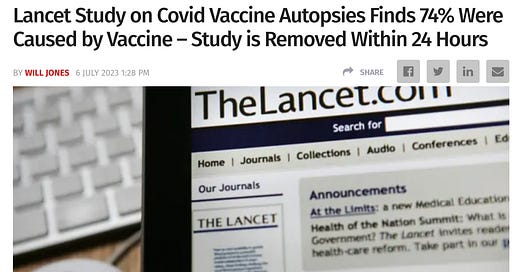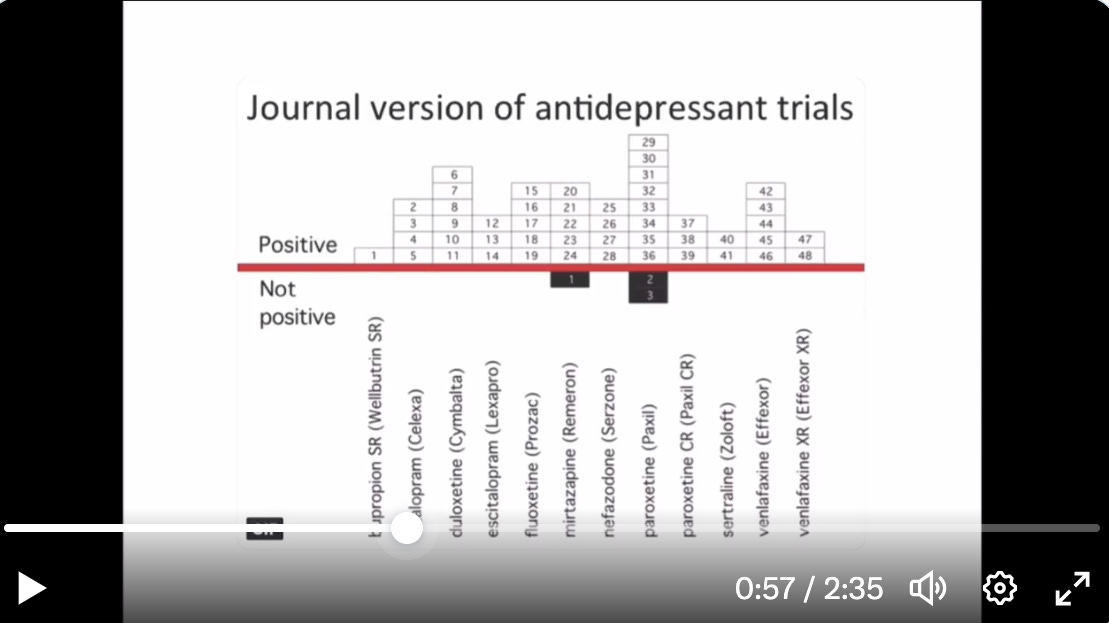Inconvenient Truth Magically Disappears from Medical Journals...
A Lancet preprint found that, among Covid vaccine autopsies, 74% were caused by the shots. We aren’t supposed to learn about details like this while the people responsible are still profiting from these shots.

The paper, a pre-print that was awaiting peer-review, is written by leading cardiologist Dr. Peter McCullough, Yale epidemiologist Dr. Harvey Risch and their colleagues at the Wellness Company and was published online on Wednesday on the pre-print site of the prestigious medical journal.
However, less than 24 hours later, the study was removed and a note appeared stating: “This preprint has been removed by Preprints with the Lancet because the study’s conclusions are not supported by the study methodology.” While the study had not undergone any part of the peer-review process, the note implies it fell foul of “screening criteria”.
The original study abstract can be found in the Internet Archive.
According to the abstract:
The most implicated organ system in COVID-19 vaccine-associated death was the cardiovascular system (53%), followed by the hematological system (17%), the respiratory system (8%) and multiple organ systems (7%). Three or more organ systems were affected in 21 cases. The mean time from vaccination to death was 14.3 days. Most deaths occurred within a week from last vaccine administration. A total of 240 deaths (73.9%) were independently adjudicated as directly due to or significantly contributed to by COVID-19 vaccination.
We don’t have access to whatever details supposedly disqualify this preprint and those details will never appear in a mainstream headline, but we can venture a guess as to why this paper was disqualified.
Here’s a clue.
This gentleman explains:
They took 74 FDA-registered studies of which 31% were never published, and the FDA sort of reevaluated all the studies and decided did it support the use of antidepressants or did it not support the use of antidepressants?
…So if you look at the journals the way they were published - there’s almost 50 articles published on various antidepressants. So you can see that almost all the studies that were published were positive.
So if you were a doctor you’d say wow, it is overwhelmingly positive… there is clear evidence from this evidence-based medicine that antidepressants are good medications.
When the FDA went back and said, let’s look at all the publications. Let’s look at the way they were published, and we’re going to make our own determination if they’re good or bad, this is actually what the FDA found… of the exact same trials.
It’s like 50/50. They don’t really work. There’s an equal number of studies that show that the antidepressants don’t work as to show it works.
But if you’re looking at the journal version of it, you’d say, as an evidence-based medicine practitioner, I think this stuff really works.
But in fact it’s really a toss up. And that’s because of selective publication.
Selective publication. It’s a thing.
You can wait a few years until the information can no longer be suppressed, but I don’t recommend it.







